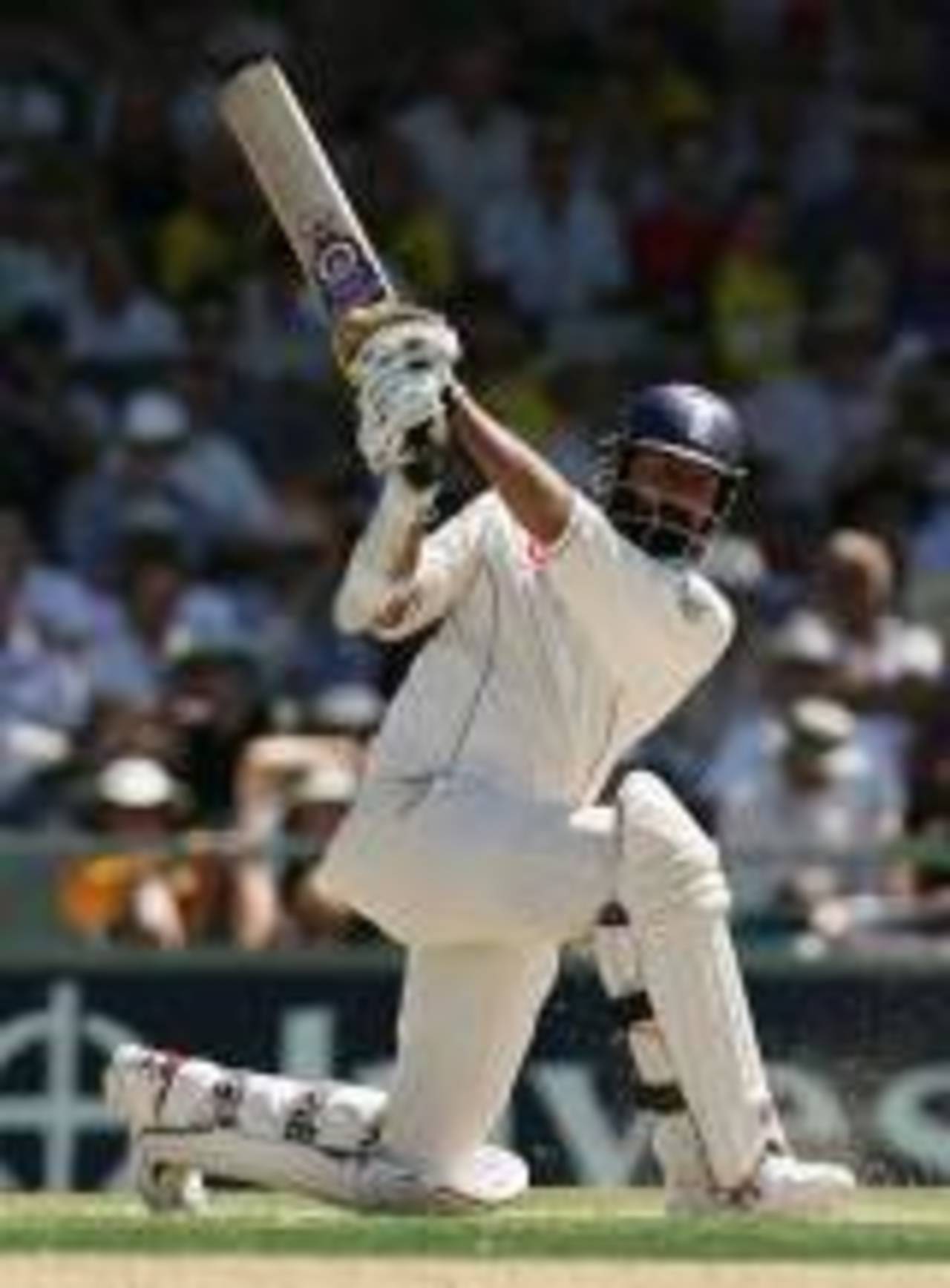At 24, in his 11th Test, and at the 11th hour of this series, Monty Panesar has taken the latest giant step in a career with few small ones. He has already been in line for the BBC Sports Personality crown, and been paid £300,000 to yak to a ghost writer about his life. His face is everywhere, from mags to masks. His name is sport for headline writers raised on British comedy – and there are a few of those, given the inordinate popularity of the formulation ‘Dad’s Army’. Now he has not only taken five wickets in a Test innings at the WACA -where only Daniel Vettori and Bishen Bedi have done so among visiting finger spinners - but contributed delightfully and improbably with the bat.
Panesar didn’t even bowl particularly well on the first day, struggling with the breeze in his face, and needing the support of his captain to get through a spell where he was too often short and wide. Nonetheless, the dimension he added to England’s attack was palpable: his dismissal of Gilchrist was a collector’s piece of slow left-arm bowling. So was his personality, infectious even in the field, where his presence had previously been depicted in such dismaying terms. His wicket-taking celebrations, of course, make Jean Borotra look like Steve Davis.
The wicket-taking party is cricket’s version of the rave: lots of unrestrained and frenetic activity in which it is hard to completely join. What happens on the other side of the boundary is connected in the event but not in the spirit. Panesar somehow unites the two occasions, behaving as we perhaps might ourselves. No sooner had he taken his first wicket on the first day than the Barmy Army was indulging in its choreographed ‘Monty Dance’, involving a lot of leaping and high-fiving. They kept it up – like most things they do – all day and with blissful abandon.
Panesar’s priceless quality, in a cricket world full of ‘going to work’ and ‘hard days at the office’, is innocence. He gives as dull a press conference as anyone – they’re always coming out well, but they have to land in the right areas – but on the field hides nothing. A couple of months ago, Graeme Smith warned that Panesar would face ‘an unbelievable amount of abuse’ from Australian crowds, some of which might be racist. It provided a headline for a day, but always seemed more a reflection of Smith’s flair for provocation than anything else. He was welcomed to the wicket today with a universal cheer, redoubled when he connected solidly with his first defensive shot. After his full-blooded sweep for four from Warne, the roar shook the temporary seating. After his straight-driven boundary from Clark, one half expected swooning females to shower the field in panties.
Likewise the lamentations and jeremiads about Panesar’s capture by English celebrity culture – as well meant as they might be – seem premature. In his book Late Innings (1982), the New Yorker’s baseball writer Roger Angell committed to print some sentiments that are worth calling to mind, from time to time, in the context of modern professional sport: ‘It is true that the smallest flutter of a spontaneous incident – in sports, or anywhere else in public life in this country – is now seized upon and transformed at once into a mass-produced imitation or a slogan or an advertising gimmick…It is dispiriting but we can’t let ourselves miss the moment of humour and exultation when it does come along, or deny its pleasure.’

